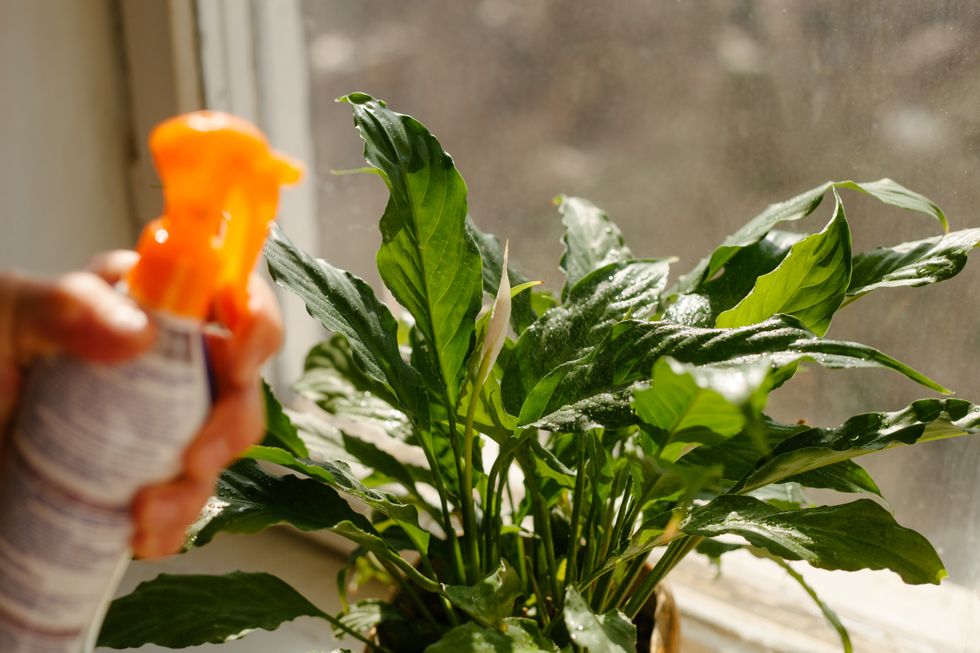In the garden GBN: Keep pests from your houseplants with three scents that deter insects
Keep pests from your houseplants with three oils
GB News is sharing everything you need to know to grow and care for the plants in your garden and home. This week, we look at how to keep pests from your houseplants
Don't Miss
Most Read
Trending on GB News
Keeping houseplants alive can be a challenge on its own, never mind trying to deter pests.
Speaking exclusively to GB News, an expert shared which pests are most likely to be attracted to your houseplants and how to get rid of them. She shared three oils that can help deter pests.
The president of Black Pest Prevention Nicole Carpenter said treating the soil can be a good way to keep pests away.
She said: "The most common pests that houseplants suffer from are fungus gnats, spider mites, and aphids. Rather than targeting pests directly, introduce beneficial microbes or mycorrhizae to the soil.

Spritz different scents around your houseplants to get rid of pests
GETTY"These enhance plant resilience against pests like fungus gnats by creating a healthier root environment, naturally reducing pest survival."
While pests can be annoying, there are some scents that are sure to keep them away. In particular, rosemary, clove and peppermint can be good deterrents.
Nicole continued: "These enhance plant resilience against pests like fungus gnats by creating a healthier root environment, naturally reducing pest survival.
"Instead of directly treating the pests, make a barrier spray with rosemary, clove and peppermint oils mixed with water. Spritz the air and nearby surfaces - not the plant itself.
"This scent discourages pests from approaching the plant entirely, creating a preventive 'no-pest' zone."
Homeowners who are really struggling to keep destructive pests away can use predatory insects to their advantage. The expert continued: "For more serious pest issues, try introducing predatory mites (for spider mites) or lacewing larvae (for aphids and mealybugs).
"These beneficial insects can be a surprising solution for indoor plants and work well in enclosed areas where they can thrive long enough to make a difference.
"For fungus gnats or root-level pests, a diluted hydrogen peroxide flush (3% solution mixed with water) oxygenates the soil and disrupts pest larvae.
"This non-toxic method boosts root health and effectively clears out larvae without harming plants. Thrips and spider mites are both sensitive to certain light spectra.
LATEST DEVELOPMENTS

UV treatments can also be beneficial
GETTY"A UV light treatment (using a handheld UV-C lamp) every couple of weeks can target these pests without affecting the plant’s health, offering a modern twist to pest control that’s still plant-safe.”
GB News has shared guides with useful advice for many jobs in the garden. Experts shared two bulbs to plant now for a 'vibrant' display in spring 2025.
In other winter care news, GB News has revealed how to help fuschias thrive through winter as they require "extra care" as the temperatures drop.
Experts also discuss when should you stop mowing your lawn for the year and what you need to know.








